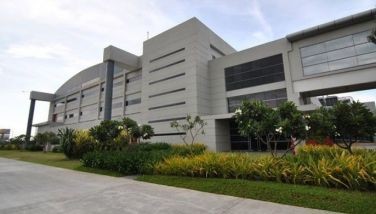Japan-Philippines access agreement signed today

MANILA, Philippines — The Philippines and Japan are expected to sign today the Reciprocal Access Agreement (RAA), a military pact that will facilitate mutual visits between Filipino and Japanese forces for training and joint exercises.
Both countries are expected to finalize the RAA during the 2nd Philippines-Japan Foreign and Defense Ministerial Meeting (2+2), which will be attended by Foreign Affairs Secretary Enrique Manalo and Gilberto Teodoro Jr. and Japan’s Foreign Minister Yoko Kamikawa and Defense Minister Minoru Kihara.
The RAA is likely to be signed during President Marcos’ meeting with Kamikawa and Kihara at Malacañang.
The controversial RAA is expected to facilitate joint training exercises between the Japanese Self-Defense Forces and the Philippine military. It will also establish guidelines for handling weapons and ammunition during these exercises, as well as jurisdiction over criminal acts and accidents and vice versa.
Japan has already signed similar accords with Britain and Australia. The Philippines has equivalent pacts with the United States and Australia and plans to pursue one with France.
The Philippines’ military chief said last Thursday he hoped a key defense pact with Japan allowing for the deployment of troops on each other’s territory will be signed at security talks this week.
Armed Forces chief Gen. Romeo Brawner told reporters. “RAA is important because it will allow Japanese forces, Japanese troops to come into our country to conduct training with us. It will also allow our troops to go to Japan to train with them.”
Last week, Japanese Ambassador Kazuya Endo said discussions on the RAA are almost complete and the prospect of the deal getting signed is bright.
Endo said Japan is seriously concerned about China’s “repeated acts that obstruct freedom of navigation and increased tension in the region, including the recent dangerous behavior that resulted in danger, in damage to the Philippine vessels and to the injuries to Filipinos on board.”
However, a militant group said yesterday that ordinary Filipinos “stand to gain nothing” from the RAA, which has been likened to the Visiting Forces Agreement (VFA) with the United States.
In a statement, the Kilusang Magbubukid ng Pilipinas (KMP) said that various sectors are expected to protest against this agreement.
“This military access agreement with Japan is far from the people’s broad demand for a peaceful resolution of the conflict in the West Philippine Sea (WPS),” KMP chairperson Danilo Ramos said.
Different from US VFA
Marcos had said the defense accord between the Philippines and Japan is different from the country’s VFA with the US.
“It’s not going to be as if it’s their base and they – their seamen – will come down and will go into the city and go… I don’t think that that’s a part of the agreement,” he said during a Foreign Correspondents Association of the Philippines (FOCAP) forum in April.
Marcos was asked during the FOCAP forum which country should take custody of erring Japanese servicemen in case the RAA is approved.
He said “it’s not the same as a Visiting Forces Agreement. It’s not similar. We’ve had problems with that with the Americans, some American forces, we all know. But that’s not… it’s very, very different from what the Reciprocal Agreement will be with the Japanese.”
Signed in 1998, the VFA allows the entry of American troops, exempting them from passport and visa regulations so they can participate in joint military drills in the Philippines.
The Philippines also has long-standing defense cooperation with Australia.
The Philippine Senate ratified the Philippines-Australia Status of Visiting Forces Agreement on July 24, 2012.
Marcos previously said the Philippines and Japan would greatly benefit from the RAA in maintaining regional peace and stability in the Indo-Pacific region.
Regional defense strategy
Malacañang asserts that the RAA will enhance the capabilities of the Philippines and Japan in terms of security and disaster preparedness, boost maritime cooperation, and help maintain regional peace and stability in the Indo-Pacific region.
But the KMP argues that this agreement aligns with the United States government’s Indo-Pacific archipelagic defense strategy, which aims to strengthen US military presence and positioning of troops and equipment in military bases in Japan, South Korea, and the northern and western parts of the Philippine archipelago.
“The (Philippine) government’s act of forging defense ties with so-called allies like Japan and France, amid concerns over the volatile situation in the South China Sea, can be considered as a dangerous and hostile act,” Ramos stated.
He claimed that it does not work toward a peaceful resolution of the conflict and tension in the WPS.
On the contrary, Ramos said that the US-backed RAA can “further agitate China and its forces in the contested territories in the WPS and South China Sea.”
In addition to the RAA, the US, Japan and Philippine governments previously agreed to develop strategically critical infrastructure in the Luzon Economic Corridor through the Partnership for Global Infrastructure and Investment.
The Luzon Economic Corridor aims to support connectivity between Subic Bay, Clark, Manila and Batangas. The US and Japan will accelerate investments in high-impact infrastructure projects in these areas, including rail, port modernization, clean energy, semiconductor supply chains and agribusiness, to connect and drive economic growth in each hub.
“These developments are not intended for the genuine economic development of the country. Ultimately, these will serve the United States’ interest to maintain its military stronghold in the Indo-Pacific region and in its open challenge vs. China,” Ramos said.
The Philippines and Japan – longtime allies of the United States – have been boosting ties in the face of an increasingly confrontational China, which is locked in maritime territorial disputes with both countries.
- Latest
- Trending






























